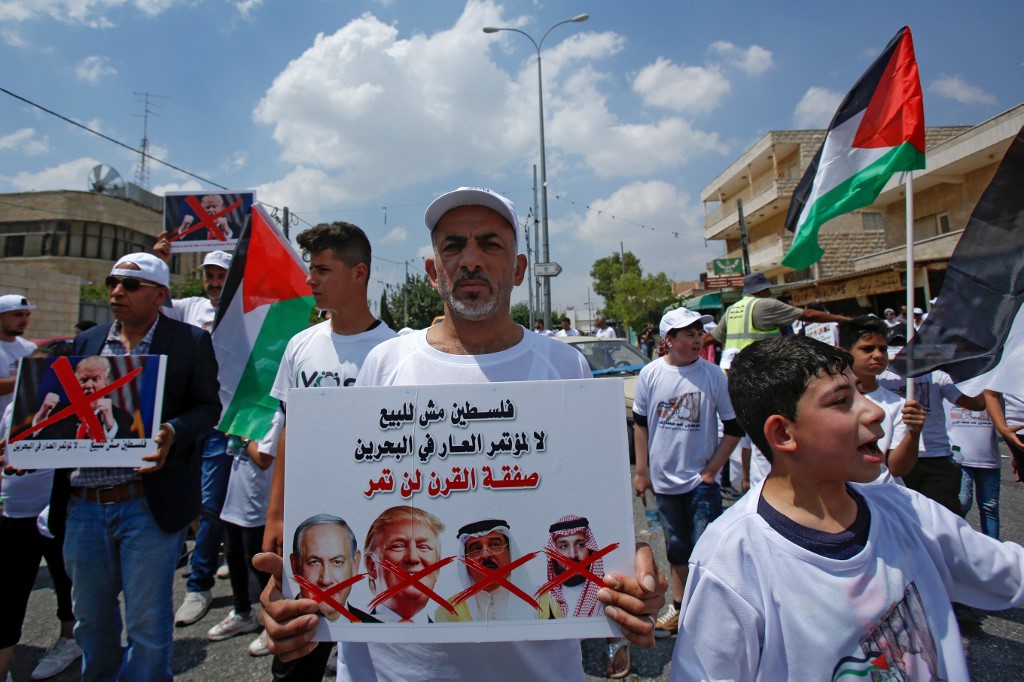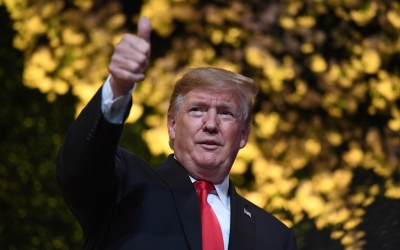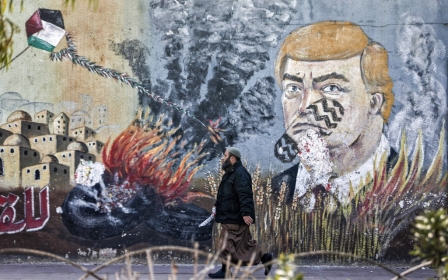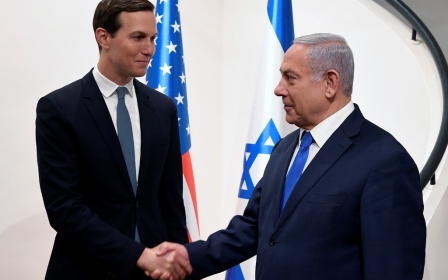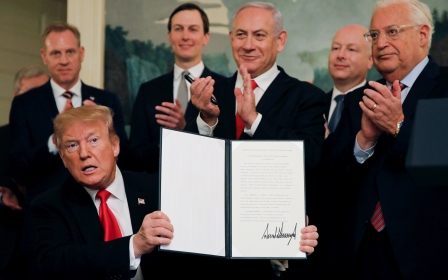Manama conference: US facing 'Arab wall of rejection' over Palestine peace plan
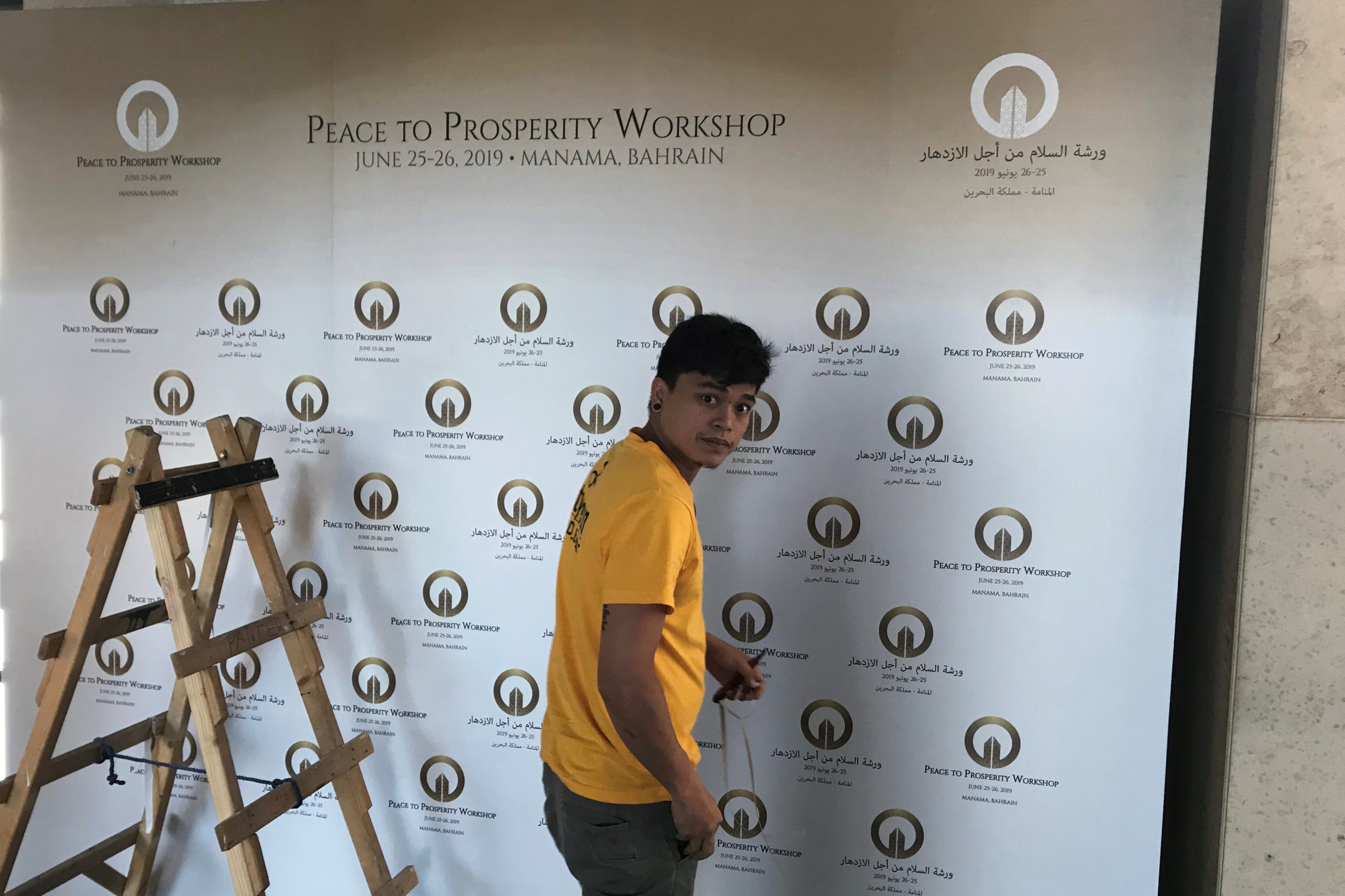
This week's economic conference in Manama, ostensibly a first step towards US President Donald Trump's "deal of the century", will serve only to bolster normalisation between Israel and Arab Gulf states, experts say.
With Palestinians absent from the table in the Bahraini capital, few are optimistic about the US plan to attract investments and build a "framework for a prosperous future" in Israel and the occupied Palestinian territories.
"Beyond potential economic pledges - a common occurrence in the Arab world - the conference is unlikely to promise any tangible results," Grace Wermenbol, a scholar at the Washington-based Middle East Institute, told Middle East Eye.
"Separating economic peace from a political resolution is ... a resoundingly naive approach that ignores the importance of the political and social grievances that characterise the ongoing crisis," she said.
By putting the cart before the horse in this fashion, Wermenbol added, Washington will likely "face a wall of Arab rejection in the near future".
Palestinian boycott
The two-day conference, which opens on Tuesday, comes after Jason Greenblatt, Trump's Middle East envoy, confirmed that the roll-out of the broader US peace plan may be delayed until November.
Saudi Arabia, the United Arab Emirates and Qatar have all reportedly signed up to attend the conference, while US officials have said that Egypt, Jordan and Morocco will also participate.
'There should be the political plan first - that the Palestinians have accepted - and then you bring people together to say, this is the investment that is needed to kick this off'
– Kamel Hawwash, professor and analyst
But while Israel was planning to send a delegation to Manama, Palestinian officials have opted to boycott the event, alongside Iraq and Lebanon.
Ibrahim Melhem, a spokesman for the Palestinian Authority, publicly urged Egypt and Jordan - the only Arab countries that have peace treaties with Israel - to withdraw, noting that their participation would carry the "wrong message" on the unity of the Arab position towards Trump's deal.
Leaked excerpts of the deal indicate that it will heavily favour Israel, while failing to genuinely address Palestinian aspirations for statehood.
Kamel Hawwash, a UK-based Palestinian university professor and analyst, said the US decision to push ahead with the conference, despite Palestinian non-attendance, highlights its true goals.
"This is, one, about normalisation ... It is about putting Israelis and Arabs basically in the room," Hawwash told MEE, noting that any discussion of economic opportunities would come in the context of present-day Israel and the occupied territories - not of what may be possible in a future Palestinian state.
"I think the other thing is basically to humiliate the Palestinians by saying to them, look, your Arab brethren are here, and you're not really a player," he added.
'The wrong way around'
What will be discussed over the course of the two-day Manama conference remains unclear.
Asked for a copy of the event's agenda, the US State Department redirected MEE's queries to the White House, which did not respond to multiple messages.
In broad strokes, the US and Bahrain last month issued a joint statement noting that the "Peace to Prosperity" workshop would mark "a pivotal opportunity to convene government, civil society, and business leaders to share ideas, discuss strategies, and galvanize support for potential economic investments and initiatives that could be made possible by a peace agreement."
As a precursor to Trump's long-awaited "deal of the century", the conference is primarily about securing Gulf money in an effort to pacify Palestinians - essentially, trying to buy economic peace before a larger political plan is released, analysts note.
"This has come the wrong way around," Hawwash said. "There should be the political plan first – that the Palestinians have accepted - and then you bring people together to say, this is the investment that is needed to kick this off."
At the same time, the conference will be "full of symbolism", noted Bessma Momani, a specialist in Middle East politics at the University of Waterloo. "The US wants to go into the unveiling of the 'deal of the century' with the optics of Arab support for the plan," she told MEE.
A united front
The attendance of Arab states fits into US-led attempts "to increase engagement between Israel and Sunni Arab states based on shared geopolitical interests that hinge on countering Iranian expansion," Wermenbol said.
The reliance of Jordan and Egypt on Gulf money gave the Trump-Saudi axis greater leverage to encourage their participation, she added.
Moreover, "the Iranian bogeyman figures a lot into all of these debates," said Thomas Juneau, a Middle East policy analyst at the University of Ottawa.
"Saudi [Arabia] and the UAE view ... everything around the conference as part of those efforts to mount some kind of a regional front against Iran, and that's where Israel comes in," he told MEE.
Eager to cement an international anti-Iran partnership, Riyadh and its allies have put up no real resistance to a series of controversial US moves - including the recent Jerusalem embassy relocation and Trump's decision to recognise Israeli sovereignty over the occupied Golan Heights - while also welcoming Israeli leaders to the Gulf.
As for the stated US goal of attracting economic investments via the Manama forum, analysts say it is difficult to imagine how business leaders would be enticed to open their pockets, considering the political status quo in Israel and the occupied Palestinian territories. Everything from securing land to sourcing raw materials could pose a significant challenge.
"The business risks are so high ... [and] who are going to be their partners if the Palestinians have said we’re not coming [to Manama]?" Hawwash asked.
He added that the future of any business deal would be far from certain, with Palestinians poised to reject the forthcoming "deal of the century".
"The main weapon the Palestinians have is their signature," he said, "and if they're going to withhold their signature on a future political plan, then the question is, who in his right mind would invest in the Palestinian areas as they are now?"
Middle East Eye propose une couverture et une analyse indépendantes et incomparables du Moyen-Orient, de l’Afrique du Nord et d’autres régions du monde. Pour en savoir plus sur la reprise de ce contenu et les frais qui s’appliquent, veuillez remplir ce formulaire [en anglais]. Pour en savoir plus sur MEE, cliquez ici [en anglais].


